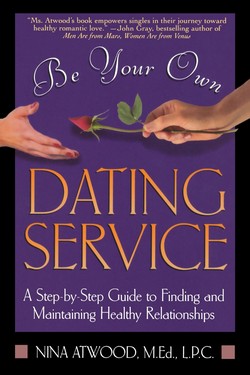Love at First Sight: Real? Yes. Smart? No.
By Nina Atwood
 “Love at first sight” is a well-known expression, but how real is it? I’ve heard many couples over the years refer to how quickly they fell in love. Some say it was instantaneous, others say it took weeks or months. You have probably heard more than one friend say “it was love at first sight”! The latest research tells us that it is possible to fall in love in as little as a fraction of a second. But the reality is that it doesn’t always lead to lasting love.
“Love at first sight” is a well-known expression, but how real is it? I’ve heard many couples over the years refer to how quickly they fell in love. Some say it was instantaneous, others say it took weeks or months. You have probably heard more than one friend say “it was love at first sight”! The latest research tells us that it is possible to fall in love in as little as a fraction of a second. But the reality is that it doesn’t always lead to lasting love.
One study, conducted by Syracuse University Professor Stephanie Ortigue, revealed that up to twelve areas of the brain are involved in falling in love, the net result of which is a feeling of euphoria not unlike the feeling derived from the use of cocaine. Researchers found that this could happen in as little as a fifth of a second. They also found that the experience of love is based on processes that take place not just in the brain, but also in the heart and stomach. “Butterflies” in the stomach when you see that special person are real!
It may be unromantic to talk about love in the brain and physiological sense because it feels so incredibly real when it happens. You don’t think about brain chemistry when your eyes lock with your future parner’s for the first time, but you are definitely at the effect of it. All twelve of those areas of your brain work overtime and the net result is that you fall in love, whether instantaneously or over time. Like most people, you probably thought you were making a good decision the last time you feel in love, but if you’re reading this article, odds are that didn’t turn out so well. It’s not surprising, because those chemical responses are not designed for discernment about who is good for you in the long run.
Sociologist Helen Fisher says that it only takes seconds to size up a potential partner. In a flash, we scan the other person visually, then listen to his voice, and just like that, a decision is made. Either we mentally “pass,” or we continue. These snap-of-the-finger processes are part of the brain’s design, built in millions of years ago when we needed them to instantly discern who or what might be a source of danger. We have no control over those first few seconds, but after that, anything goes.
Not everyone falls in love instantaneously. Surveys of long term couples typically find that only a small percentage of them report instant love. Most of them say that it took time, weeks or even months, to fall in love. Studies also show that the development of non-romantic love, or deep-rooted caring love, takes far longer, and many couples never get there. But the ones who last, do.
The problem with instant love is that it isn’t accurate. Couples who fall in love quickly also tend to have sex, or marry, quickly. A 13-year longitudinal study by Tom Huston at the University of Texas Austin (Huston et al., 2001) found that couples with steady, longer courtship periods and awareness of each other’s strengths and weaknesses were more likely to remain happily married over the long term. By contrast, couples with Hollywood Romances, those bursting, passionate courtships and overnight weddings, quickly grew dissatisfied as spouses, and predictably, were more likely to divorce within seven years.
While falling in love quickly feels great, it very rarely leads to a satisfying long-term relationship. This is trading long-term happiness for the short-term euphoria of passion and the fantasy orientation that goes along with that. Generally, the more euphoric a relationship and the faster the pace in the beginning, the harder the fall later on.
Pacing your relationship over time, the conventional wisdom of “getting to know you,” actually turns out to be good advice. When you pace your relationship, you trade the instant gratification of fueling the passion in favor of the long-term benefit of building a powerful foundation for a lasting love. Instead of a sprint, it turns out the best relationships are marathons.
Emotional pacing is the cornerstone of the advice you’ll find in Temptations of the Single Girl. Visit the rest of www.singlescoach.com for loads of free advice about how to date smart, pace yourself, and find true, lasting love!
For more on this, listen to my podcast “Love at First Sight.”
Entry Filed under: Advice for Men,Advice for Women,Dating,Marriage,Relationships






1 Comment
1. Tom Hudson | March 25th, 2012 at 1:12 am
I’m inclined to believe that “love at first sight” may be more on the lines of how the auric energy clouds of two individuals interact, very similarly to that of the electron valence rings of two atoms which are chemically reactive toward each other; ergo the term “chemistry” between people.